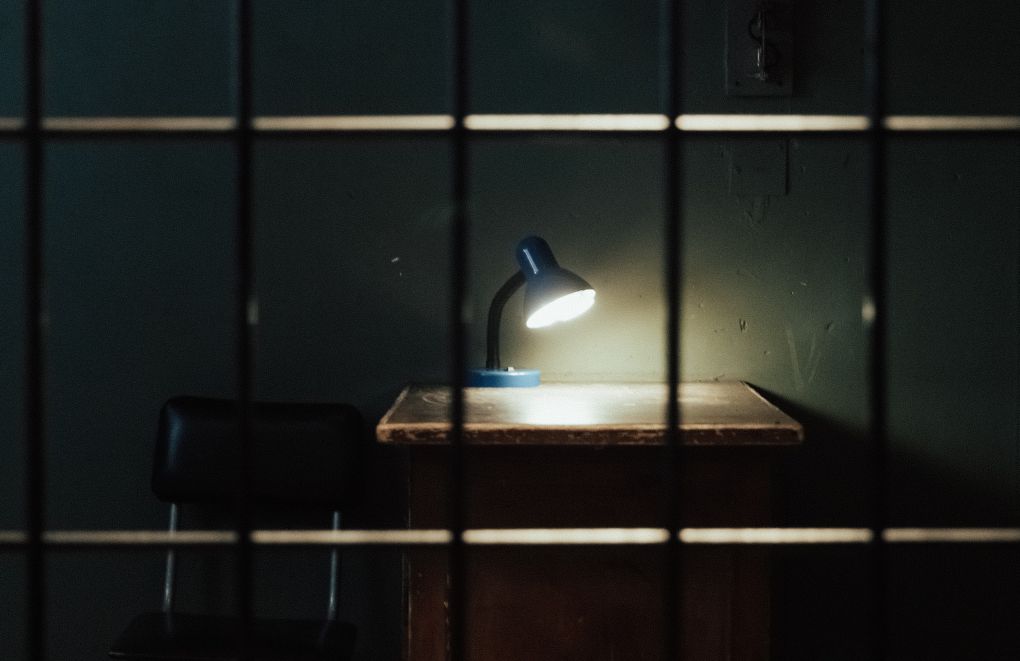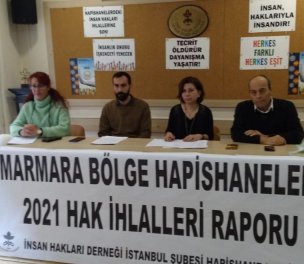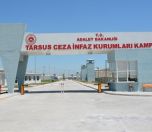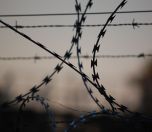Click to read the article in Turkish
The violations of rights encountered in the prisons of Turkey during the pandemic have been documented in a recent report.
The Civil Society in the Penal System Association (CİSST) has released its second annual report based on the complaints from prisons during the novel coronavirus (COVID-19) pandemic. The report has specifically addressed the COVID-19 measures in prisons, regulations on criminal enforcement and the prison conditions directly affecting the lives of prisoners.
Covering the year 2020, the annual report of the CİSST has been prepared as part of a project set out to improve the conditions of prisons and prisoners in Turkey in line with the international human rights and values and is supported by the Embassy of Sweden.
The report has shed light on prison conditions in Turkey under the chapters of quarantine conditions, heating and lighting, hygiene, toilet-bathroom, food and bed-pillow. Under another section, rights violations in transfers, strip search and restrictions on visitations-publications have been listed. The Association has also documented the violations of rights faced by prisoners under the report's section on torture and ill treatment.
The second part of the report has specifically focused on the groups defined as prisoners with special needs, namely children, women, LGBTI+s, prisoners with disabilities, convicts of aggravated life sentences, students, workers and foreign nationals. It has addressed the problems faced by these groups as a result of their special situations, sharing details about how the pandemic has affected them and the maltreatment that they face.
1,528 prisoners from 205 prisons
As civil society organizations are not given the opportunity to monitor prisons in Turkey, the CİSST has prepared its report based on letter exchanges, complaints reported to the CİSST hotline, the information received from prisoners' families and relatives and attorney visitations.
In addition to these methods, the Association also follows the prison conditions through the applications to receive information and the Parliamentary questions and inquiries submitted to the Speaker's Office.
According to the report, including the newly opened prisons, 1,528 prisoners from 205 different prisons came in contact with the CİSST in 2020. The attorney visitations could take place only in late 2020 due to the pandemic measures. Apart from these visitations, the problems and violations faced by prisoners were documented via letter exchanges and the hotline.
'Alternatives to prison should be discussed'
Setting out to offer an overview of Turkey's prisons in 2020 in terms of their conditions and human rights, the annual report of the CİSST has briefly shared the following violations in the conclusion part:
- With the spread of the COVID-19 outbreak all over the world and in prisons in 2020, the conditions of places of confinement have become a more burning issue on the agenda.
- The risks of transmission to be caused by prison capacities and the necessity of prisoners' equal access to the right to healthcare and to their all other rights under pandemic conditions have offered an opportunity to discuss alternatives to imprisonment.
- After the first case was seen [in Turkey] in March 2020, the prison system was reviewed as a result of the outbreak and some measures were taken to minimize the transmission risk. The amendment to the criminal enforcement was passed into law to reduce prison capacities; however, maltreatment and violations of rights continued behind bars.
- The system, which was not ready for the outbreak, the practices that vary from one prison to the other and the failure to inspect these practices have laid the ground for several violations of rights.
- COVID-19 measures have delayed letter exchanges between prisoners and the outside world and it has become more difficult to access data when compared to the previous years.
- The disruption of communication has paved the way for human rights violations to become more widespread.
- Prisoners' communication with both other prisoners and their relatives has been restricted as a result of the suspension of their right to attend workshops, events and talks in prison and their right to receive visitors and make phone calls with people from outside the prison.
- Their communication with the outside world has been hindered as they cannot access newspapers, TV and radio.
- With the outbreak of the pandemic, works have been undertaken to disinfect prisons and wards and to take the necessary hygiene measures in the shared spaces used by prisoners and prison personnel. There have emerged several problems with the constant maintenance of hygiene and prisoners' access to hygiene kits.
- As is also the case in prison wards, hygiene measures have also fallen short in quarantine wards, where prisoners are under risk.
- While it is important to ensure that prisoners have an adequate and balanced diet and receive vitamin and food supplements to reinforce their immune systems, it has become more difficult for them to access sufficient food or receive it from outside to meet their daily needs.
- Another major problem that came to the fore in 2020 was the violation of the right to healthcare. While the potential effects of the outbreak on prisoners with multiple and/or serious illnesses and at an old age are already risky, there have emerged problems with ensuring a constant access to treatment and monitoring of current diseases.
- Prisoners have been unable to access their medication, they cannot go to the infirmary, they have been unable to report their complaints to doctors, they are not referred to hospitals and severely ill prisoners have not been offered the opportunity to be treated at home though the reports of the Forensic Medicine Institution say that they cannot lead their lives alone.
(AS/SD)









